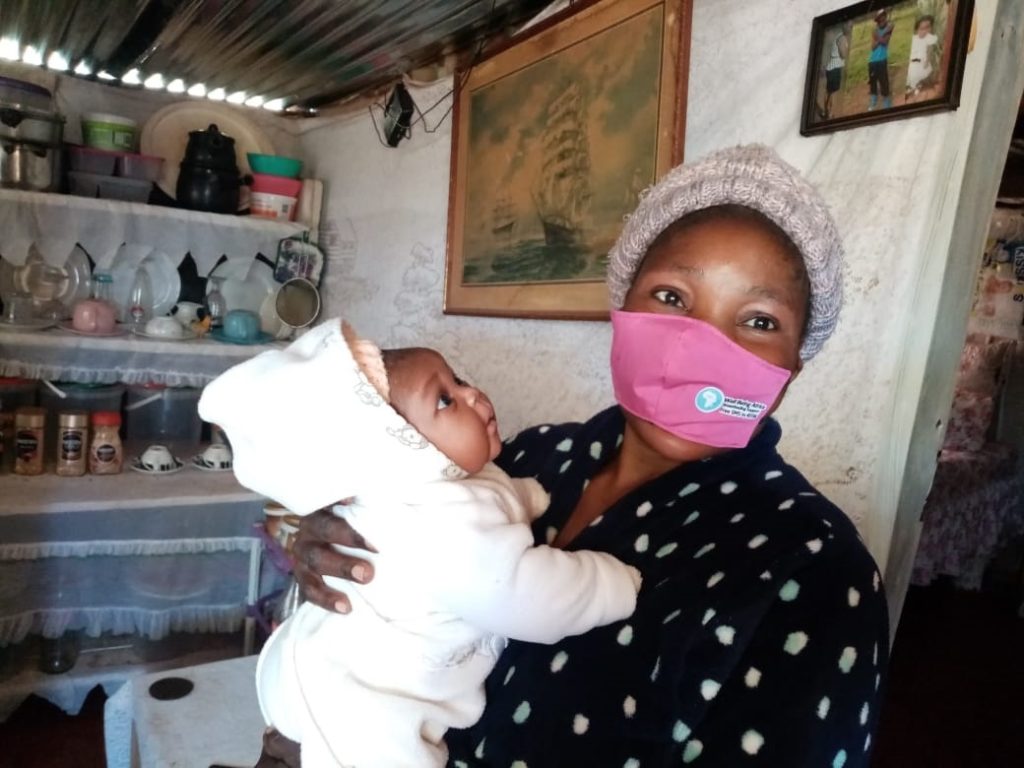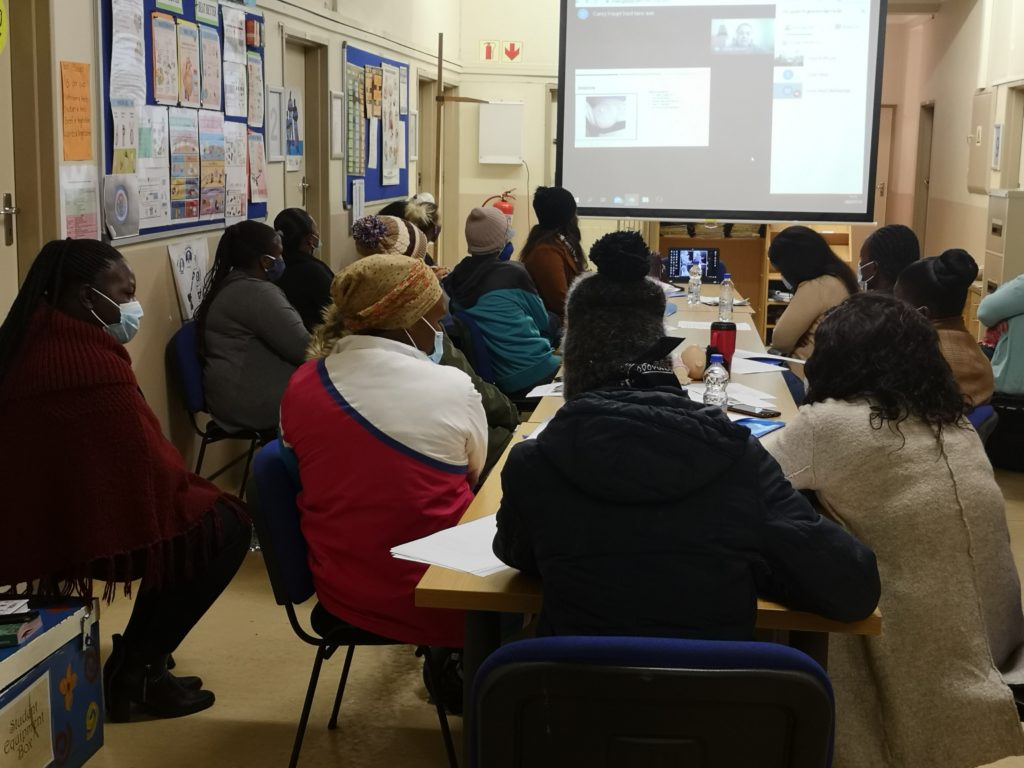Background
Breastfeeding support for mothers has numerous benefits for the child, the mom, and the nation at large. It provides the ideal nutrition for infants. When breastfeeding is done appropriately, it lowers infants’ risk for infections, respiratory diseases, diarrhea, and child stunting1-3. It contributes to children’s psychomotor development. Breastfed infants have a lower risk of diabetes, obesity, and certain cancers in adult years4,5. A healthy infant grows to become a healthy and productive adult able to contribute to the nation’s economy6.
Protecting, promoting, and supporting breastfeeding in our communities will enable the the realisation of the full benefits of breastfeeding. However, as natural as breastfeeding is, it is not so simple to implement. This explains why many moms who wish to breastfeed their babies experience frustration, do it inappropriately, or give up on breastfeeding. WHO recommends that infants be exclusively breastfed for 6 months and thereafter be given complementary food with breastfeeding for 2 years and beyond7. If the goal of the World Health Assembly (WHA) to increase exclusive breastfeeding rate to 50% by 2025 will be achieved8, intervention to protect, promote and support breastfeeding needs to increase. The tenth step to successful breastfeeding by WHO/UNICEF; fostering breastfeeding support groups and referring mothers to them has a great potential in improving exclusive breastfeeding rate3. Capacity development for Community Health Workers (CHWs) and creating avenues for moms to access timely breastfeeding support are crucial to the success of breastfeeding support in the community9.
The global estimate of Exclusive breastfeeding (EBF) for six months in 2016 was 43%. However, in South Africa, the figure (7%) remained low up till 2015 despite several initiatives to promote breastfeeding. However, the recent record has shown an encouraging improvement of 32%10. This development needs to be sustained and be improved through stakeholders’ continued innovative approaches.
Poor infant and young child feeding practices are common in South Africa. These practices result in longer-term nutritional outcomes manifesting through the high rates of undernutrition, particularly stunting11.
The critical problem which the project seeks to address is the lack of support for mothers on discharge from the hospital after they give birth to their babies. Whereas the WHO/UNICEF’s tenth step to the successful implementation of breastfeeding is to foster the establishment of breastfeeding support groups and refer mothers to them. There are insufficient support groups in the communities to refer moms to. Moreover, where they exist, they are either inaccessible to moms or moms are unaware of the existence. Also, the community health workers who could be instrumental to assist moms in this regard are often ill-equipped to provide breastfeeding support to moms. As a result, moms with little or no breastfeeding skills often rely on conflicting information and engage inappropriate breastfeeding and complementary feeding practices. This shortcoming could potentially erode the benefits of breastfeeding. Continuous breastfeeding training for CHWs is essential to update their capacity to support and promote breastfeeding.
Project goal
The goal of the breastfeeding project is to facilitate the implementation of the tenth step to successful breastfeeding by strengthening capacity development in BF support for CHWs and ensuring that moms have timely access to BF support.
Objectives of the breastfeeding support for mothers
- To provide training in breastfeeding support and care to CHWs.
- To engage with moms for BF support through the clinics and the WBA SMS system.
- To facilitate the establishment of breastfeeding support groups through the Flourish
franchise. - To connect moms with a breastfeeding support group in the local communities.
- To establish a network of breastfeeding counsellors equipped with knowledge and skills to promote, protect, and support breastfeeding.
Our strength in Breastfeeding Support
- WBA conducted a pilot breastfeeding support project at Daspoort, Pretoria West. The project was hugely successful and shows a good prospect for capacity building in BF support for CHWs as well as BF support for moms. The lessons learnt in the pilot project are valuable to the continued success of the breastfeeding project.
- The project leader for the BF support project is an expert in BF support with experience in the South African health care system. She is a community dietitian with a wealth of experience implementing breastfeeding support as part of health promotion. She is an experienced breastfeeding practitioner, an expert breastfeeding trainer, and has an excellent understanding of the hindrances to successful breastfeeding in the communities.
- The CEO of WBA is experienced in planning and implementing projects as well as productive engagements with the local communities.
- Our breastfeeding team comprises dedicated and committed personnel and volunteers. Our field workers are enthusiastic young moms who have demonstrated capacity in BF support for moms with their own BF experience and knowledge.
- Also, WBA’s continued network with breastfeeding advocates, South African Certified Lactation consultants, dietitians, nutritionists, and Allied Health workers have broadened our BF training capacity, ability to adapt the training modules and align with recent scientific evidence and policy.


Expected Outcome
We expect that:
- More than 60% of the potential beneficiaries will be trained in breastfeeding support and be empowered to support breastfeeding moms in the communities.
- Up to 70 percent of moms accessing care at the various clinics in Tshwane subdistricts will be reached and be connected to access breastfeeding support as needed.
- Up to 40 breastfeeding support groups (Franchise hosting) will be established in the Tshwane Metropolitan municipality.
- There will be increased awareness and utilisation for the already available Mom-connect; the DOH resource used in supporting maternal health through cellphone-based technologies.
Project evaluation
The following procedures are used in evaluating impact of the project:
Process evaluation: Qualitative feedback on the project implementation are obtained from the beneficiary moms, CHWs, and FWs through one-on-one interviews and focus group discussions on an ongoing basis.
Impact evaluation: Evaluation of the impact of the training on the CHWs’ breastfeeding knowledge is done using the pre-and post-assessment. The observation-based practical assessment is used to assess the skills and competencies of the trained CHWs in breastfeeding support.
References
- Nieuwoudt SJ, Ngandu CB, Manderson L, Norris SA. Exclusive breastfeeding policy, practice and influences in South Africa, 1980 to 2018: A mixed-methods systematic
review. PloS one. 2019 Oct 18;14(10):e0224029. - Brahm P, Valdes V. Benefits of breastfeeding and risks associated with not breastfeeding. Rev Chil Pediatr. 2017 Jan 1;88(1):15-21.
- Pramono A, Desborough J, Smith J. The ten steps to successful breastfeeding policy review. Breastfeeding Review. 2019 Nov;27(3):15.
- Binns C, Lee M, Low WY. The long-term public health benefits of breastfeeding. Asia Pacific Journal of Public Health. 2016 Jan;28(1):7-14.
- Shekar M, Kakietek J, Dayton Eberwein J, Walters D. An investment framework for nutrition: reaching the global targets for stunting, tanaemia, breastfeeding, and wasting. The World Bank; 2017 Apr 24.
- Walters DD, Phan LT, Mathisen R. The cost of not breastfeeding: global results from a new tool. Health policy and planning. 2019 Jul 1;34(6):407-17.
- World Health Organization. Nutrient adequacy of exclusive breastfeeding for the term infant during the first six months of life. Geneva (Switzerland): WHO; 2002.
- WHO/UNICEF. (2014) Global nutrition targets 2025: breastfeeding policy brief (WHO/NMH/NHD/14.7). Geneva: World Health Organization; 2014. Available at:
https://apps.who.int/iris/bitstream/handle/10665/149022/WHO_NMH_NHD_14.7_eng.pdf?ua=1. - Horwood C, Butler L, Barker P, Phakathi S, Haskins L, Grant M, Mntambo N, Rollins N. A continuous quality improvement intervention to improve the effectiveness of community health workers providing care to mothers and children: a cluster randomized controlled trial in South Africa. Human resources for health. 2017 Dec 1;15(1):39.
- National Department of Health, Statistics South Africa, South African Medical Research Council, ICF. South Africa demographic and health survey 2016: Key
indicators. Pretoria, South Africa and Rockville, Maryland, USA: NDoH, Stats SA, SAMRC, and ICF, 2017. - Budree S, Goddard E, Brittain K, Cader S, Myer L, Zar HJ. Infant feeding practices in a South African birth cohort—A longitudinal study. Maternal & child nutrition. 2017
Jul;13(3):e12371.
